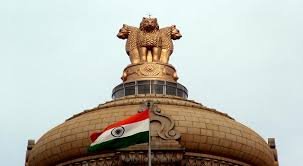This judgment from the Supreme Court of India addresses the complex and often conflicting issues surrounding stray dog management, citizen safety, and animal welfare. It significantly modifies earlier directives to ensure a balanced approach.
On July 28, 2025, a two-judge Bench of the Supreme Court took suo moto cognizance of a news report from The Times of India, Delhi Edition, titled “City Hounded by Strays, Kids Pay Price”.
Following this, on August 11, 2025, the Bench issued directions to authorities in Delhi, Ghaziabad, NOIDA, Faridabad, and Gurugram to pick up and relocate stray dogs to designated shelters/pounds, explicitly stating that these dogs should not be released back onto the streets after sterilization and immunization. Simultaneous creation of infrastructure and dog roundup was mandated.
These initial directions led to several interlocutory applications and writ petitions from “animal lovers” and NGOs, who claimed the directions conflicted with existing Animal Birth Control (ABC) Rules, 2023, and were impossible to comply with.
Specific challenges included a Special Leave Petition (SLP) by the Conference for Human Rights (India) against a Delhi High Court order regarding sterilization, and another SLP by Reema Shah concerning harassment faced while feeding community dogs.
The core issue before a three-Judge Bench became the right of stray dogs to live on streets versus the safety and security of citizens, particularly children and the elderly, from potentially rabid stray dogs. The Solicitor General highlighted the grave risk posed by aggressive, rabies-infected dogs and the 3.7 million dog bites reported in India in 2024.
Law Involved
Animal Birth Control Rules, 2023 (ABC Rules): This statutory framework, framed under the Prevention of Cruelty to Animals Act, 1960, is central to the case. Rule 11(19) specifically mandates that stray dogs, after being sterilized, inoculated, and dewormed, must be released back into the same locality from which they were picked up.
Article 19 of the Constitution of India: Animal lovers argued that the threat of contempt proceedings for obstruction encroached upon their Fundamental Right to Freedom of Expression.
Article 21 of the Constitution of India: The Solicitor General argued that the initial directions were interim measures essential to protect the Right to Life of citizens from aggressive stray dogs.
Reasoning
The three-judge Bench acknowledged the salutary intent of the August 11, 2025, order – to protect citizens from aggressive and rabid stray dogs.
However, the Bench found that the directions prohibiting the release of treated and vaccinated dogs (paras 12(iii) and 12(iv)) were in direct conflict with Rule 11(19) of the ABC Rules, 2023. The Bench considered this prohibition “too harsh”.
The Court also recognized the “gargantuan proportions” of logistical challenges involved in impounding the entire stray dog population of Delhi and NCR, citing the need for massive infrastructure, manpower, veterinarians, cages, and vehicles. Concerns were raised about the imminent risk of culling due to municipal authorities lacking the capacity to house lakhs of dogs.
The Court noted the scientific reasoning behind Rule 11(19), stating that relocating treated dogs back to their original localities prevents overcrowding in shelters and is a compassionate approach, as dogs are returned to their familiar environment.
Arguments from animal lovers highlighted the success of aggressive sterilization and inoculation programs in towns like Dehradun and Lucknow in significantly reducing stray dog populations.
The Court emphasized the need for a “balancing exercise” to reconcile the protection of citizens with the legal framework of the ABC Rules and the feasibility of implementation.
Holding (Modified/Clarified Directions) The three-judge Bench modified and clarified the previous directions as follows:
Continued Compliance (Paras 12(i) and 12(ii)): Municipal authorities shall continue to pick up and round up stray dogs, and create designated shelters/pounds [33a].
Release after Treatment (Modification of Paras 12(iii) and 12(iv)): The prohibition on releasing picked-up strays is kept in abeyance. Dogs that are picked up shall be sterilized, dewormed, vaccinated, and released back to the same area from which they were picked up [33b].
Exception for Dangerous Dogs: This release does not apply to dogs infected with rabies or suspected to be infected with rabies, or those displaying aggressive behavior. Such dogs shall not be released back onto the streets after sterilization and immunization and should be kept in separate pounds/shelters [33b].
Dedicated Feeding Spaces: Municipal authorities must create dedicated feeding spaces for stray dogs in each municipal ward. Feeding of stray dogs on the streets is strictly prohibited, and individuals violating this will face legal action.
Helpline for Violations: Each municipal authority shall create a dedicated helpline number for reporting violations of the feeding directions.
No Obstruction: The direction against obstruction (Para 13) is reiterated. No individual or organization shall cause hindrance to the effective implementation of these new directions. Obstruction of public servants will lead to prosecution.
Deposits from Petitioners: Individual dog lovers and NGOs who approached the court are directed to deposit Rs. 25,000/- and Rs. 2,00,000/- respectively with the Court Registry within 7 days, failing which they cannot appear further. These funds will be used for stray dog infrastructure.
Stray Dog Adoption: Animal lovers are free to apply for adoption of street dogs. Adopted dogs will be tagged, and applicants are responsible for ensuring they do not return to the streets.
Compliance Report: Municipal authorities must file an affidavit of compliance with statistics on available resources for ABC Rules implementation.
Expanded Scope: Recognizing the uniform applicability of ABC Rules, the Court expanded the scope of the matter beyond Delhi and NCR to include all States and Union Territories, directing their impleadment.
Transfer of Cases: All pending writ/suo moto petitions dealing with similar issues in various High Courts shall be transferred to the Supreme Court for analogous consideration.
The matters are listed after eight weeks for further directions and compliance reports.
IN RE: “CITY HOUNDED BY STRAYS, KIDS PAY PRICE”
Supreme Court: 2025 INSC 1018 (DoJ 22-08-2025)






